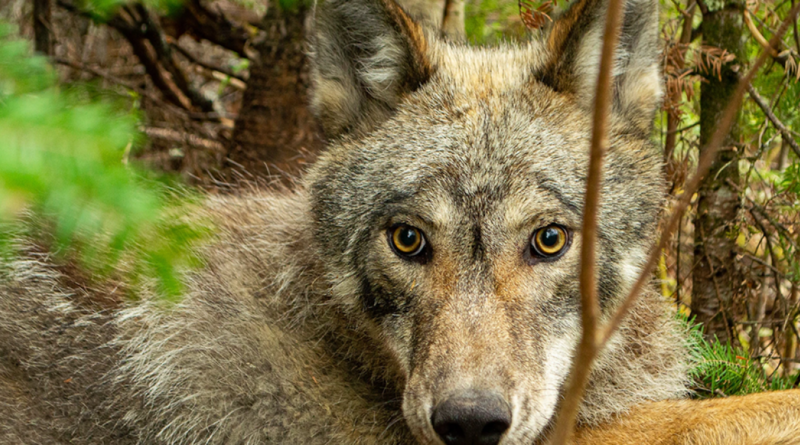Understanding the Environment and Natural Resources Trust Fund on MN options
This story was published by MinnPost.
For nearly a decade, researchers at the University of Minnesota have been studying wolves in north central Minnesota and in the areas around Voyageurs National Park.
Their research, now known as the Voyageurs Wolf Project, involves studying the role of wolves in the environment – their reproduction and direct impact on prey, as well as indirect effects on the region’s forests and wetlands.
The study requires equipment such as radio collars, remote cameras, tracking devices and trapping devices. Thanks to the Environment and Natural Resources Trust Fund (ENRTF), researchers can collect data more effectively while safely handling animals and managing their off-limits, said Joseph Bump, professor and a University of Minnesota researcher with a mission.
“Funds from the Environmental and Natural Resources Trust Fund make this project possible,” Bump said. “It’s really a comprehensive funding source that’s important to our work, and the comprehensive program is an asset to the state of Minnesota.”
The Voyageurs Wolf Project is one of the many projects that have been funded since the ENRTF was first established in 1988 when 77% of Minnesota voters approved a constitutional amendment to create the fund. Dedicated dollars pay for activities and projects that protect, conserve and preserve the state’s natural resources – air, water, fish and wildlife – for the benefit of current and future Minnesotans.
The Trust Fund, which is supported in part by money from the Minnesota State Lottery system, has awarded more than $1 billion to more than 1,600 projects statewide since 1991. scheduled to expire in 2025.
A blank ballot on a ballot question would be a “no” vote, meaning that for the amendment to pass, 50% of all voters nationwide must vote yes.
The fund is overseen by the Legislative-Citizen Commission on Minnesota Resources (LCCMR), a commission of five legislators each from the House and Senate, two citizen members elected by each council and citizens of five more appointed by the governor. The LCCMR makes recommendations for projects to be funded by the trust fund to the Legislature each year, including this year’s package of 101 projects totaling approximately $80 million.
In addition to the Voyageurs Wolf Project, other projects funded by the Trust Fund over the past decade include:
- $7 million by 2024 for the University of Minnesota’s Invasive Terrestrial Plants and Pests Center.
- Approximately $5 million by 2023 to expand recreational activities on Minnesota State Trails by renovating and improving existing trails across the state.
- $2 million by 2022 to replace septic systems that fail to protect groundwater.
- $2.7 million in 2021 to help build the Crane Lake Visitor Center on Voyageurs Island Community.
- $3.5 million in 2020 to the Minnesota Department of Natural Resources to protect public forests and plant more trees.
- $4 million in 2019 to develop solutions to the nation’s aquatic problems through research, management and prevention.
- $1 million in 2018 to the Minnesota Department of Health to monitor uncontrolled contamination of drinking water at wells and entrances.
The new amendment was amended to expressly prohibit the funds from being used for the construction, maintenance, improvement or operation of wastewater treatment plants, which have received dollars from the fund in the past. This change comes after outrage from environmental groups in 2018, raised by lawmakers using the fund to pay for such projects.
The ENRTF is different from the Legacy Amendment, which was another constitutional amendment approved by Minnesota voters in 2008. The Legacy Amendment, which is scheduled to expire in 2034, uses a sales tax to fund funding. four different ones dedicated to outdoor heritage, fresh water. , parks and trails and arts and culture heritage.
DFL Representative Rick Hansen of South St. Paul, who chairs the House Committee on Finance and Policy on Environment and Natural Resources and Chairs the LCCMR, said ENRTF has supported more research than Legacy funding years, but there is a big difference between sources two is the trust fund is ongoing while the Legacy funds are not.
“(The Legacy Amendment) uses a sales and distribution tax… “The current importance of the trust fund is to continue the constitutional protection of the income in the trust.”
Thanks to urban, suburban and rural Minnesotans across political lines, all valuing the outdoors, clean water and clean air, Hansen said there has been very little opposition to projects supported by the fund.
“The people of Minnesota enjoy the great outdoors, they value clean water and clean air, and they put their trust in us as their elected officials to carry out good projects,” Hansen said. “By establishing this fund in accordance with the constitution, and the question before us to continue that constitutional commitment, it gives protection to that hope that we will invest in the right things to help our country to get better.”
This the brute appeared for the first time MinnPost and is reprinted here under a Creative Commons license.
#Understanding #Environment #Natural #Resources #Trust #Fund #options
